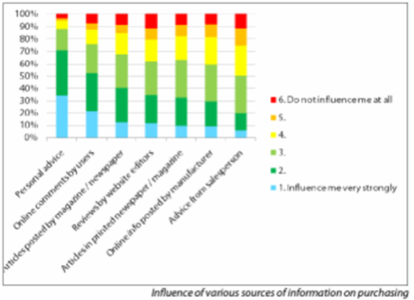The fact that 10% of users create 90% of user-generated content on any given social media site has become a standard trope in discussions around social media. Because of this gap between mainstream users and the enthusiasts who contribute frequently and tend to dominate the discussion, many companies have decided that participating in online communities is not worth their time, as these companies assume that it doesn’t allow them to reach their average consumer. According to a recent study by Rubicon Consulting, however, they do so at their own peril, as these active users are also the most likely to influence their peers’ buying decisions.

According to Rubicon’s research (PDF), most popular online communities do indeed confirm that 80 to 90% of user-generated content is produced by less around 10% of users. That, indeed, is no surprise to anybody who has participated in these communities. However, Rubicon also found that online reviews drive far more purchase decisions than newspaper articles, reviews by website editors, or advice from store employees. Only personal advice was rated as more influential by Rubicon’s panel of 3036 web users over the age of 13 in the U.S.
The role of ‘influencers’ in marketing is still a heavily disputedsubject. This study, however, seems to confirm the importance a relatively small number of users can have over the buying decisions of a larger group.

Rubicon also argue that while it is hard for companies to use the web to communicate with users, it is still a great medium to talk to them. This seems like a bit of an outdated idea to us. According to other studies we have seen from Cone and Universal McCann, users do actually want to communicate with companies through social media sites.
Overall, most of the results in this study do not come as a surprise: frequent social network contributors are, on average, younger and more tech savvy than mainstream users. They also see social networks as a utility instead of as a way of keeping in touch with ‘real’ friends. This report is well worth reading though, as it might confirm quite a few of your own suspicions about online communities and their users.

















